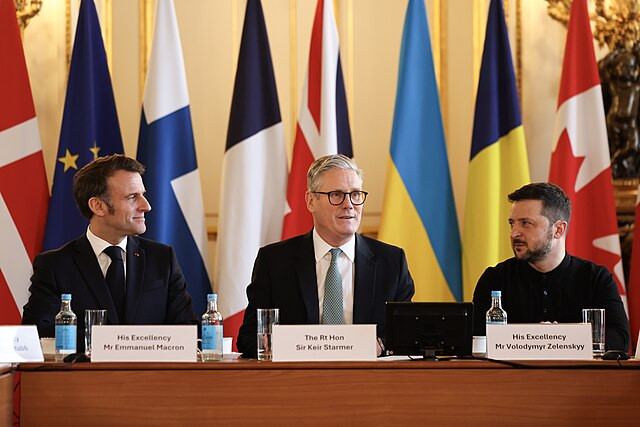European Union leaders convened in Brussels on Thursday for an emergency summit to discuss bolstering military support for Ukraine and strengthening Europe's own defense capabilities following President Donald Trump's decision to halt U.S. military aid and intelligence-sharing with Kyiv.
Polish Prime Minister Donald Tusk urged the EU to escalate its defense commitments, stating, "Europe must take up this challenge, this arms race. And it must win it." He emphasized that the EU has the economic and military strength to stand against Russia, declaring, "Europe as a whole is truly capable of winning any military, financial, economic confrontation with Russia-we are simply stronger."
At the heart of the summit was a sweeping proposal from European Commission President Ursula von der Leyen that would raise defense spending by €800 billion ($860 billion) across the bloc. The plan, dubbed "ReArm Europe," offers fiscal flexibility to member states for military expenditures and a joint borrowing initiative of up to €150 billion ($160 billion) to fund arms procurement.
Ukrainian President Volodymyr Zelenskyy, the only non-EU leader invited to the meeting, thanked European allies for their continued support in the face of Washington's policy shift. "During all these periods-and last week-you stayed with us," Zelenskyy said. "We are very thankful that we are not alone and these are not just words, we feel it."
Von der Leyen underscored the urgency of the situation, warning, "Europe faces a clear and present danger, and therefore Europe has to be able to protect itself, to defend itself, as we have to put Ukraine in a position to protect itself and to push for a lasting and just peace."
French President Emmanuel Macron signaled a dramatic shift in European security policy, proposing that France's nuclear deterrent be extended to cover the broader EU. "I want to believe that the United States will stand by us. But we have to be ready if that is not the case," Macron said in a televised address ahead of the summit.
The proposal sparked mixed reactions. Lithuanian President Gitanas Nauseda supported the idea, calling it a "very serious deterrence toward Russia." Poland expressed interest in discussing the plan, while Germany remained cautious, emphasizing the need to keep NATO and the U.S. engaged in European defense.
Despite the push for increased military spending, divisions remain among EU leaders. Hungarian Prime Minister Viktor Orban, a close ally of Trump, signaled his reluctance to endorse direct aid for Ukraine but appeared open to measures that would strengthen Europe's own defense capabilities. Slovakian Prime Minister Robert Fico has also voiced skepticism over further EU involvement in Ukraine.
German Chancellor Olaf Scholz, whose government is preparing to lift constitutional borrowing limits to fund increased military expenditures, emphasized the need for continued U.S. engagement. "We must ensure, with cool and wise heads, that U.S. support is also guaranteed in the coming months and years, because Ukraine is also dependent on their support for its defense," Scholz said.
Former Dutch Defense Minister Kajsa Ollongren described the shift in European thinking as a realization that "this might be the moment where we are on our own and we have to make sure that we are secure and that Ukraine does not lose this war and that Russia doesn't win this war of aggression." She urged European leaders to embrace a "war economy" approach despite the political and financial challenges.




